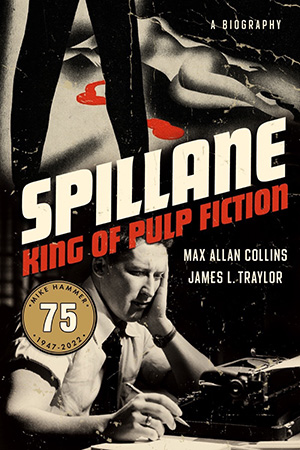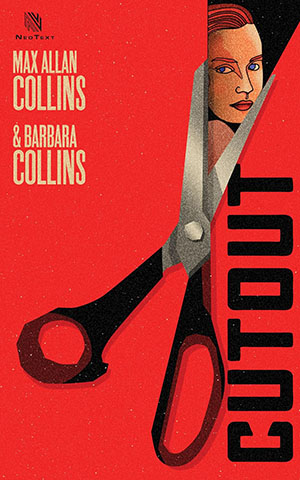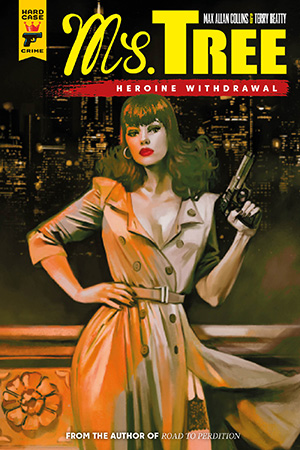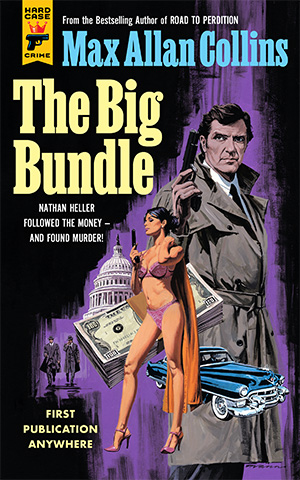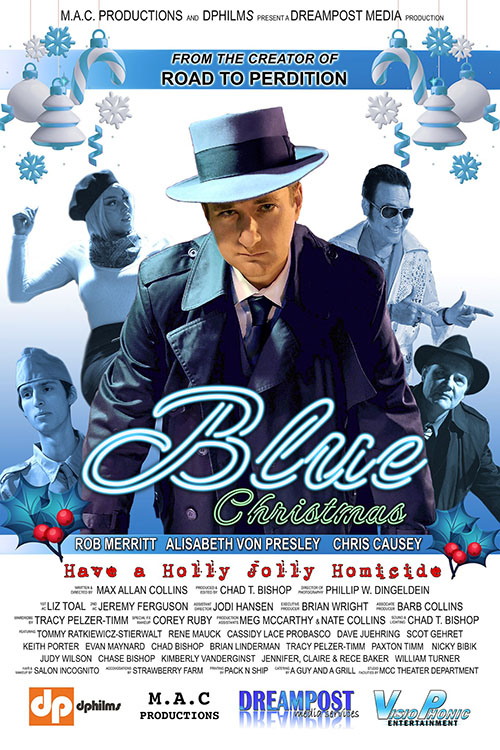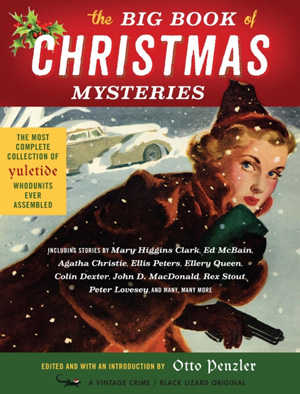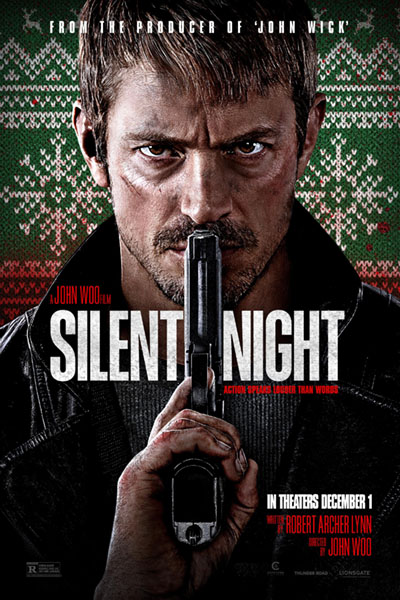Advance tickets are on sale for the World Premiere of Blue Christmas in Des Moines at the Fleur Theater on February 24. Buy them here.
Advance tickets are on sale for the Muscatine premiere of Blue Christmas at the Palms theater on March 16. Buy them here.
When I have a ticket link for the Cedar Rapids Premiere at the Collins Road Theatre on March 13, I will post it.
When I have a ticket link for the Quad Cities Premiere at the Last Picture House on March 22, I will post it.

The Edgar-nominated Spillane – King of Pulp Fiction by Jim Traylor and me is on sale at Barnes & Noble for an astonishing $13.47. That’s literally half price for a new hardcover copy. Not sure how long this price will last, so I’d suggest striking while the iron is hot. [The Nate Heller novel The Big Bundle is also 50% off! — Nate]
Pictured here is the audio edition. It, and the e-book edition, are priced higher than the hardcover (at the moment).
For those of you wondering if I’m planning to attend the Edgar Awards event, that’s as yet undecided. I have expressed here my feeling that there remains enough anti-Spillane sentiment to make a win difficult. Also, the other nominees include books on Poe and Ellroy, the first the author the award is named after (!), the second a highly celebrated author in the hardboiled field.
The other factor is that Blue Christmas has been entered in the Iowa Motion Picture Association awards and I am waiting to see how we fare there. As a three-time former president of that organization – and with a new film I’ve written and directed utilizing Iowa talent (and Iowa money), my first indie offering since 2006 – I have a responsibility to consider that event (which takes place in the same time frame as the Edgars) instead. I can only be in one place at a time.
A further factor is that a New York trip would cost me about what I was paid as an advance for Too Many Bullets. Add to this a trip from Muscatine to Manhattan and the air travel (and taxi rides) it would entail would be difficult for me at this age and with my health issues.
Again, a decision has yet to be made.
I will say that in the unlikely event that Spillane wins, it would be an honor second only to being named an MWA Grand Master, an award I treasure.
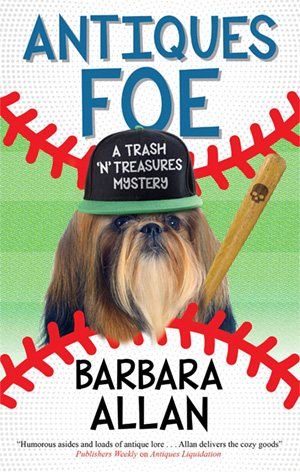
This morning Barb and I shipped Antiques Slay Belles to Severn, our publisher (based in the UK).
Getting a novel out is a harrowing job. The writing itself was concluded last Thursday. We essentially took Friday off, then dug in for a long weekend of assembling the manuscript.
That’s always tricky. Both Barb and I write in WordPerfect, so a conversion to the more accepted Word is necessary. We also create a file for each chapter as we go. The first stage of prepping the completed manuscript for the publisher is to assemble the chapters into a single file, a task I take on. The next stage is for me to read the hard copy we’ve created and for Barb to enter the corrections and to consider the tweaks I’ve made (sometimes she disagrees with them, and we discuss, and usually she’s right). Usually I get about 100 pages done and Barb begins her process of entering the corrections/tweaks while I press ahead. This is a job (on a 60,000-word manuscript like Antiques Slay Belles) that usually takes two full work days.
Occasionally I discover something that got past both of us and that requires a rewrite. That happened this time, and a considerable slice of the first chapter had to be reworked. This takes considerable poise to deal with in a cool-headed manner, and of course we both ran around with our hair on fire for a while before figuring out how to fix the problem.
Another issue is the conversion itself. We frequently discover page-numbering problems, and working in one word processing program that requires a change into another word processing problem has, as they say, issues. I do a certain of amount of work in Word and so does Barb, but for fiction writing, we both much prefer WordPerfect and we pay for that preference at this last stage of the process.
I handle the actual conversion, and I go through page by page looking for conversion problems, but I inevitably miss a few. Still, I think we send in a very clean manuscript. About the only thing I like about the conversion process is that Word gives the entire manuscript a fresh spell- and grammar-check, and I’m able to address some goofs we made that we hadn’t previously caught.
Last step is simply to send it to our editor with an attachment of the manuscript.
Now we sit back and wait for the editorial response. Usually this comes quickly, but a problem I have that some writers do not is that I almost immediately move on to my next project. And by the time I get the editorial notes, asking this and that (about plot in particular), the novel in question is less than fresh in my mind.
Not complaining. All of this is part of the process. But I am guessing this aspect of getting a novel written (and delivered) is off the radar of most readers. And that’s not a criticism. You have a right to not care (or not seek knowledge of) how the sausage is made.
Just in case you are interested, though, I thought I’d share this vital but little discussed aspect of the creation of a manuscript by fulltime professional writers.
Later this week I am joining Heath Holland on a taping his Cereal at Midnight podcast for what may become a regular (once a month?) exercise in discussing Blu-rays and 4K’s. We are starting with the latest Kino Lorber boxed set of western films.
Heath has been slicing up my two-hour (yikes!) career interview with him into bite-size portions. Here’s me on the relationship between Quarry and Audie Murphy.
M.A.C.
